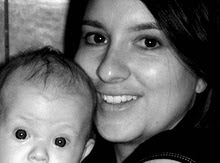During our premarital counseling, (which, granted, was quite a while ago at this point...) we took the Myers-Briggs personality tests and on the scale of Extravert v. Introvert, we discovered that we were both introverts. Up to that point I thought introvert = freakishly awkward hermit with poor hygiene. I have to say I was pleasantly surprised to read the true definition. Here is Rauch's definition:
"Extroverts are energized by people, and wilt or fade when alone. They often seem bored by themselves, in both senses of the expression. Leave an extrovert alone for two minutes and he will reach for his cell phone. In contrast, after an hour or two of being socially "on," we introverts need to turn off and recharge...For introverts, to be alone with our thoughts is as restorative as sleeping, as nourishing as eating. Our motto: "I'm okay, you're okay—in small doses."A Wikipedia contrast between Extraverts and Introverts.:
- Extraverts are action oriented, while introverts are thought oriented.
- Extraverts seek breadth of knowledge and influence, while introverts seek depth of knowledge and influence.
- Extraverts often prefer more frequent interaction, while introverts prefer more substantial interaction.
- Extraverts recharge and get their energy from spending time with people, while introverts recharge and get their energy from spending time alone.
It was so eye opening to understand this about myself. This is why those people who I could not comprehend (among them, my siblings) could run around all day with 35 other people and come home bouncing off the walls like they had just been fed 16 lbs of cotton candy when I wanted to hibernate in a dark cave. I mean I can handle a big group of people. For a limited time. Like 10 minutes. But then I need about 2 hrs of time either by myself or with a close friend to discuss/analyze the tsunami of information and sensory overload that I just endured.
(I leave it to the readers who know the two of us to determine which person in my marriage is more introverted than the other. But I will point out that Medman would probably rather have his head amputated than chit-chat with the world through a blog...)
So here are some fine quotes from Mr. Rauch's article:
Do you know someone who needs hours alone every day? Who loves quiet conversations about feelings or ideas, and can give a dynamite presentation to a big audience, but seems awkward in groups and maladroit at small talk? Who has to be dragged to parties and then needs the rest of the day to recuperate? Who growls or scowls or grunts or winces when accosted with pleasantries by people who are just trying to be nice?
If you answered yes to these questions, chances are that you have an introvert on your hands—and that you aren't caring for him properly. Science has learned a good deal in recent years about the habits and requirements of introverts. It has even learned, by means of brain scans, that introverts process information differently from other people (I am not making this up).
How many people are introverts? I performed exhaustive research on this question, in the form of a quick Google search. The answer: About 25 percent. Or: Just under half. Or—my favorite—"a minority in the regular population but a majority in the gifted population."
Are introverts arrogant? Hardly. I suppose this common misconception has to do with our being more intelligent, more reflective, more independent, more level-headed, more refined, and more sensitive than extroverts.
The worst of it is that extroverts have no idea of the torment they put us through. Sometimes, as we gasp for air amid the fog of their 98-percent-content-free talk, we wonder if extroverts even bother to listen to themselves. Still, we endure stoically, because the etiquette books—written, no doubt, by extroverts—regard declining to banter as rude and gaps in conversation as awkward. We can only dream that someday, when our condition is more widely understood, when perhaps an Introverts' Rights movement has blossomed and borne fruit, it will not be impolite to say "I'm an introvert. You are a wonderful person and I like you. But now please shush."
How can I let the introvert in my life know that I support him and respect his choice? First, recognize that it's not a choice. It's not a lifestyle. It's an orientation.
Second, when you see an introvert lost in thought, don't say "What's the matter?" or "Are you all right?"
Third, don't say anything else, either.
And this is why I am not a good person to organize our monthly Girl's Night Out. Other people put out a mass email, "Who can come to dinner on Tuesday?" 8 of the 10 say no and they think "Better reschedule." I think, "FANTASTIC!!! Girls Night Out with only 3 of us and good conversation!"
And can I just take a moment to point out that being a stay at home mom does not mean hours of solitude. It means constant, chatter-box, needy companionship. All I can say is, "Thank God for nap time." Screw the kids needing rest. Mommy needs to recharge.
So if you are an Introvert, enjoy the article. Analyze it, ponder how introverted you are, discuss it in depth with a close friend.
If you are an Extravert and are confused, bored or insulted by this, go talk to a friend about it. Or a stranger. Or a room full of strangers. And then you'll feel better.








